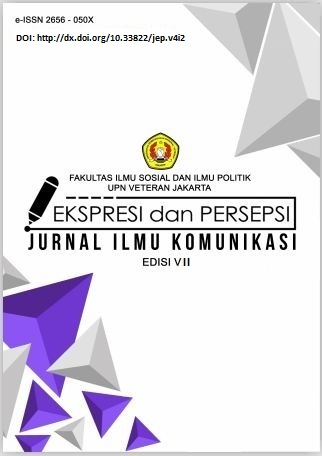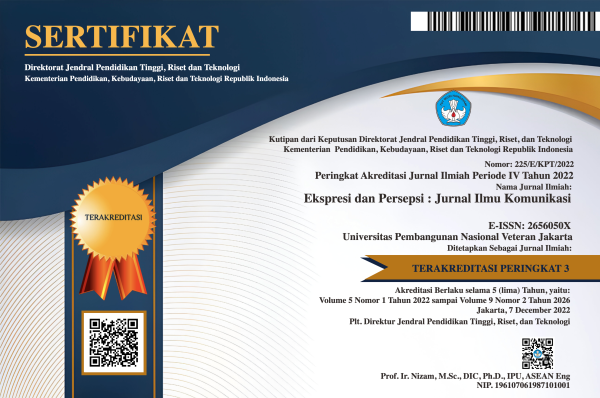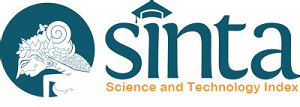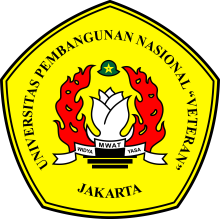DINAMIKA NEGOSIASI ORGANISASI HYBRID KEWIRAUSAHAAN SOSIAL AGRADAYA DALAM MELAKUKAN AKTIVITAS COMMUNITY DEVELOPMENT
DOI:
https://doi.org/10.33822/jep.v4i2.2627Keywords:
Komunitas, negosiasi, organisasi hibrid, petani, sosial bisnisAbstract
Tulisan ini berupaya mengkaji dinamika social enterprise (SE) sebagai organisasi hybrid dalam bernegosiasi dengan komunitas yang dibina. AGRADAYA yang menjadi subjek dalam penelitian ini masuk dalam kategori SE dimana setiap proses produksi barangnya bergantung pada relasi mereka dengan komunitas petani rempah yang dibina menjadi supplier. Model bisnis ini membuat relasi SE dengan komunitasnya bukan hanya berwujud filantropis, melainkan juga bercampur dengan bisnis. Organisasi hybrid yaitu SE dengan misi profit dan non-profit mengalami dinamika yang unik ketika dalam melaksanakan program pendampingan kepada komunitas petani, harus menghadapi dinamika negosiasi demi mendapatkan sumber daya rempah kering yang dibutuhkan. Penelitian ini menemukan bahwa dinamika negosiasi yang muncul kemudian dipengaruhi oleh posisi komunitas petani sebagai stakeholder dengan atribut dominant yang memiliki power dan legitimacy sehingga Agradaya harus hati-hati agar relasinya tetap terjaga. Meskipun SE berusaha menerapkan kesetaraan dalam menjalin relasinya, pemberdayaan komunitas masih menjadi tantangan besar bagi organisasi hybrid untuk terus berjalan dengan misi profit, people, and planet.References
Benedikter, R. (2011). Social Banking and Social Finance. New York: Springer.
CNN Indonesia. (2018). Survei: Kewirausahaan Sosial Bisa Bangun Ekonomi Kreatif. Diakses pada 8 April 2019. (https://www.cnnindonesia.com/ekonomi/20181217184258-532-354362/survei-kewirausahaan-sosial-bisa-bangun-ekonomi-kreatif)
Crane, A., & Livesey, S. (2003). Are You Talking to Me? Stakeholder communication and the risks and reward dialogue. Dalam J. Andriof, S. Waddock, & B. Husted, Unfolding Stakeholder Thinking 2: Relationships, Communication, Reporting and Performance (hal. 39-42). New York: Routledge.
Creswell, J. (2010). Research Design: Pendekatan Kualitatif, Kuantitatif, dan Mixed (terj). Yogyakarta: Pustaka Pelajar.
David Billis. (2010). Towards a Theory of Hybrid Organizations. Hybrid Organizations and the Third Sector, 46-69. doi:10.1007/978-0-230-36439-4_3
Dhesi, A. S. (2010). Diaspora, social entrepreneurs and community development. International Journal of Social Economics, Emerald Insight, 37(9), 703-716.
Freeman, E. (1984). Strategic Management : A Stakeholder Approach. University of Minesota: Pitman Publishing Inc.
Leadbeater, C. (1997). The Rise of the Social Entrepreneur. UK: Demos.
Lewicki, R. J., Barry, B., & Saunders, D. M. (2015). Negotiation. New York: McGraw Hill Education.
Lindawati, L. (2018). Kekuatan Cerita dalam Bisnis Sosial. Jurnal Studi Pemuda, 7(2), 100-110.
Mair, J., Robinson, J., & Hockerts, K. (2006). Social Entrepreneurship. New York: Palgrave Macmillan.
Maulinda, K. (2018). Proses Pengembangan Social Enterprise Agriculture : Studi Biografi pada Agradaya. Jurnal Studi Pemuda, 7(2), 133-146.
Miles, M., & Huberman, M. (1994). Qualitative Data Analysis. US: Sage Publication.
Mitchell, R. K., Agle, B. R., & Wood, D. J. (1997). Toward a Theory of Stakeholder Identification and Salience: Defining the Principle of Who and What Really Counts. The Academy of Management Review, 22(4), 853-886.
Morsing, M., & Schultz, M. (2006). Corporate social responsibility communication: stakeholder information, response and involvement strategies. Business Ethics: A European Review, 15(4), 323-338.
Smith, W., & Darko, E. (2014). Social Enterprise: contraints and opportunities-evidence from Vietnam and Kenya. ODI Report: April 2014.
Spear, R., Cornforth, C., & Aiken, M. (2009). The governance challenges of social enterprises: evidence form a UK empirical Study. Ciriec International, 80(2), 247-273. doi: https://doi.org/10.1111/j.1467-8292.2009.00386.x
Stake, R. (1995). The Art of Case Study Research. Thousand Oaks, CA: Sage.
Young, D. (2012). The State of Theory and Research on Social Enterprise. Dalam B. Gidron, Social Enterprise (hal. 19-46). Palgrave Macmillan.
Downloads
Additional Files
Published
Issue
Section
License
Kebijakan yang diajukan untuk jurnal yang menawarkan akses terbuka
Syarat yang harus dipenuhi oleh Penulis sebagai berikut:- Penulis menyimpan hak cipta dan memberikan jurnal hak penerbitan pertama naskah secara simultan dengan lisensi di bawah Creative Commons Attribution License yang mengizinkan orang lain untuk berbagi pekerjaan dengan sebuah pernyataan kepenulisan pekerjaan dan penerbitan awal di jurnal ini.
- Penulis bisa memasukkan ke dalam penyusunan kontraktual tambahan terpisah untuk distribusi non ekslusif versi kaya terbitan jurnal (contoh: mempostingnya ke repositori institusional atau menerbitkannya dalam sebuah buku), dengan pengakuan penerbitan awalnya di jurnal ini.
- Penulis diizinkan dan didorong untuk mem-posting karya mereka online (contoh: di repositori institusional atau di website mereka) sebelum dan selama proses penyerahan, karena dapat mengarahkan ke pertukaran produktif, seperti halnya sitiran yang lebih awal dan lebih hebat dari karya yang diterbitkan. (Lihat Efek Akses Terbuka).
Kebijakan yang diajukan untuk jurnal yang menawarkan akses terbuka yang tertunda
Penulis yang menerbitkan dengan jurnal ini setuju pada persyaratan berikut ini:
- Penulis menyimpan hak cipta dan memberikan jurnal hak penerbitan pertama, dengan pekerjaan [TENTUKAN PERIODE WAKTU] setelah penerbitan secara simultan dengan lisensi di bawah: Creative Commons Attribution License yang memudahkan yang lain untuk berbagi karya dengan pengakuan penerbitan awal dan kepenulisan karya di jurnal ini.
- Penulis bisa memasukkan ke dalam penyusunan kontraktual tambahan terpisah untuk distribusi non-ekslusif versi kaya terbitan jurnal (contoh: mempostingnya ke repositori institusional atau menerbitkannya dalam sebuah buku), dengan pengakuan penerbitan awalnya di jurnal ini.
- Penulis diizinkan dan didorong untuk mem-posting karya mereka online (contoh: di repositori institusional atau di website mereka) sebelum dan selama proses penyerahan, karena dapat mengarahkan ke pertukaran produktif, seperti halnya sitiran yang lebih awal dan lebih hebat dari karya yang diterbitkan. (Lihat Efek Akses Terbuka).












